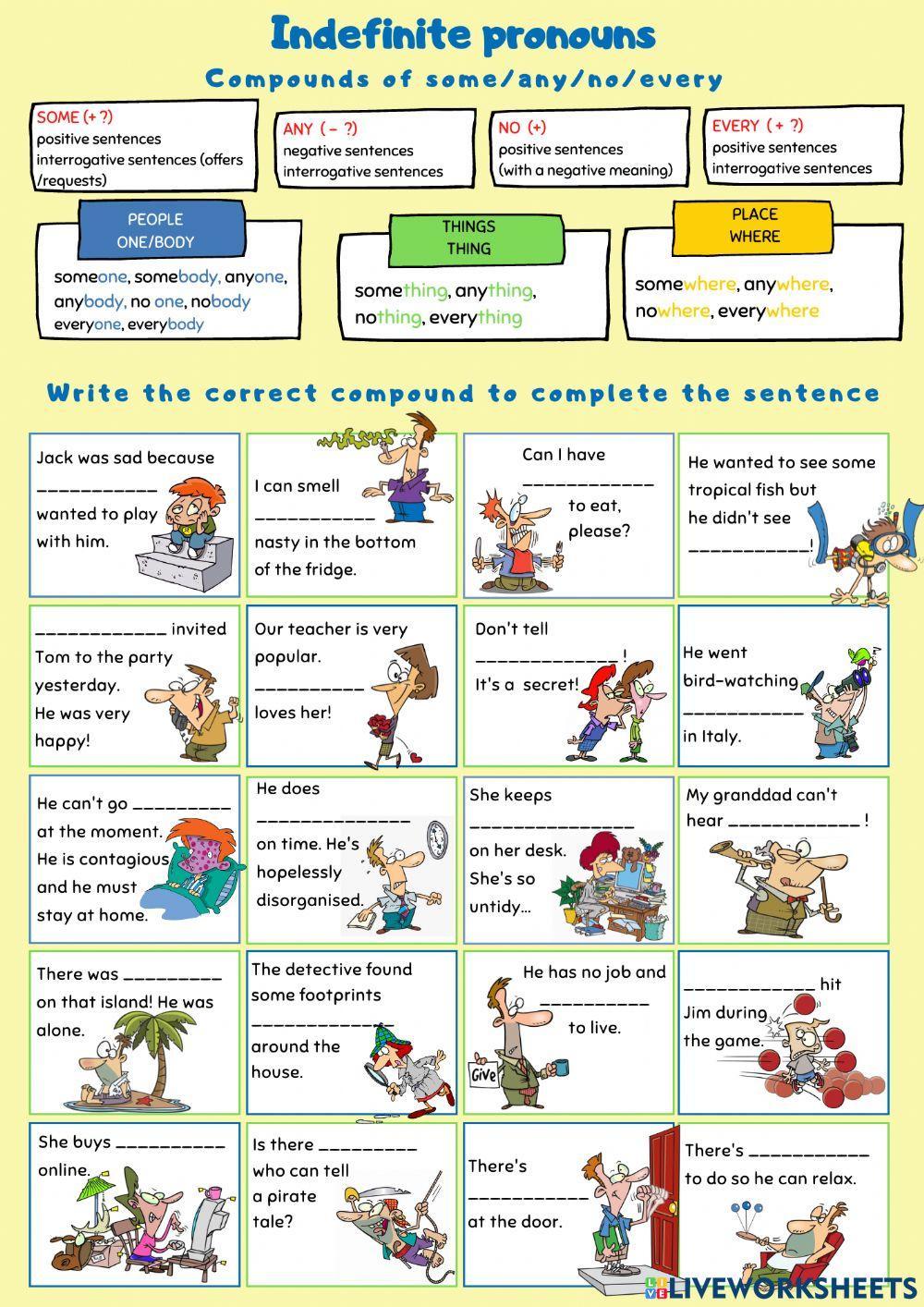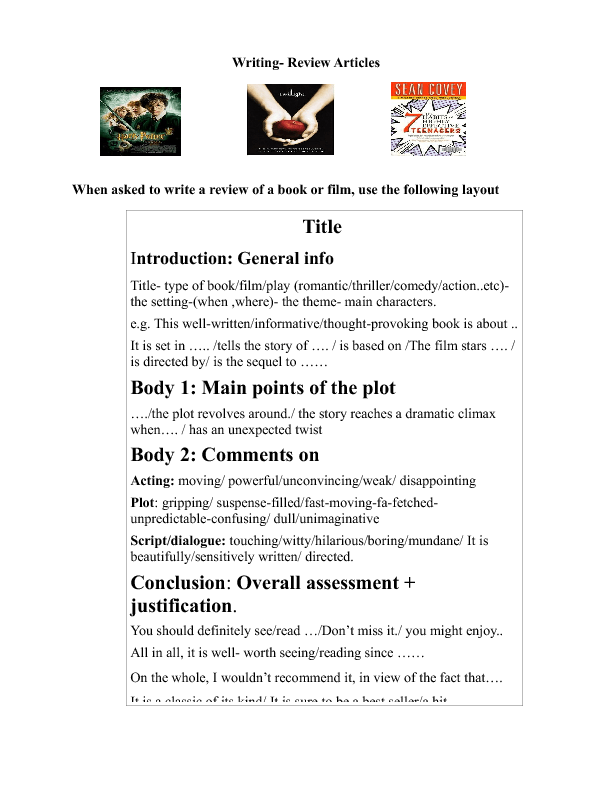Relative pronouns:
Indefinite pronouns
Indefinite pronouns do not refer to a specific person, place, or thing. In English, there is a particular group of indefinite pronouns formed with a quantifier or distributive preceeded by any, some, every and no.
| | Person | Place | Thing |
|---|
| All | everyone
everybody | everywhere | everything |
| Part (positive) | someone
somebody | somewhere | something |
| Part (negative) | anyone
anybody | anywhere | anything |
| None | no one
nobody | nowhere | nothing |
Indefinite pronouns with some and any are used to describe indefinite and incomplete quantities in the same way that some and any are used alone.
Indefinite pronouns are placed in the same location as a noun would go in the sentence.
| Noun | Indefinite pronoun |
|---|
| I would like to go to Paris this summer. | I would like to go somewhere this summer. |
| Jim gave me this book. | Someone gave me this book. |
| I won't tell your secret to Sam. | I won't tell your secret to anyone. |
| I bought my school supplies at the mall. | I bought everything at the mall. |
Affirmative
In affirmative sentences, indefinite pronouns using some are used to describe an indefinite quantity, the indefinite pronouns with every are used to describe a complete quantity, and the pronouns with no are used to describe an absence. Indefinite pronouns with no are often used in affirmative sentences with a negative meaning, but these are nevertheless not negative sentences because they are lacking the word not.
Examples
- Everyone is sleeping in my bed.
- Someone is sleeping in my bed.
- No one is sleeping in my bed.
- I gave everything to Sally.
- He saw something in the garden.
- There is nothing to eat.
- I looked everywhere for my keys.
- Keith is looking for somewhere to live.
- There is nowhere as beautiful as Paris.
Any and the indefinite pronouns formed with it can also be used in affirmative sentences with a meaning that is close to every: whichever person, whichever place, whichever thing, etc.
Examples
- They can choose anything from the menu.
- You may invite anybody you want to your birthday party.
- We can go anywhere you'd like this summer.
- He would give anything to get into Oxford.
- Fido would follow you anywhere.
Negative sentences
Negative sentences can only be formed with the indefinite pronouns that include any.
Examples
- I don't have anything to eat.
- She didn't go anywhere last week.
- I can't find anyone to come with me.
Many negative sentences that include an indefinite pronoun with any can be turned into affirmative sentences with a negative meaning by using an indefinite pronoun with no. However, there is a change in meaning with this transformation: the sentence that includes an indefinite pronoun with no is stronger, and can imply emotional content such as definsiveness, hopelessness, anger, etc.
Examples
- I don't know anything about it. = neutral
- I know nothing about it. = defensive
- I don't have anybody to talk to. = neutral
- I have nobody to talk to. = hopeless
- There wasn't anything we could do. = neutral
- There was nothing we could do. = defensive/angry
Negative questions
Indefinite pronouns with every, some, and any can be used to form negative questions. These questions can usually be answered with a "yes" or a "no"
Pronouns formed with anyand every are used to form true questions, while those with some generally imply a question to which we already know or suspect the answer.
Examples
- Is there anything to eat?
- Did you go anywhere last night?
- Is everyone here?
- Have you looked everywhere?
These questions can be turned in to false or rhetorical questions by making them negative. The speaker, when posing a question of this type, is expecting an answer of "no".
Examples
- Isn't there anything to eat?
- Didn't you go anywhere last night?
- Isn't everyone here?
- Haven't you looked everywhere?
Some and pronouns formed with it is only used in questions to which we think we already know the answer, or questions which are not true questions (invitations, requests, etc.) The person asking these questions is expecting an answer of "Yes".
Examples
- Are you looking for someone?
- Have you lost something?
- Are you going somewhere?
- Could somebody help me, please? = request
- Would you like to go somewhere this weekend? = invitation
These questions can be made even more definite if they are made negative. In this case, the speaker is absolutely certain he will receive the answer "Yes".
Examples
- Aren't you looking for someone?
- Haven't you lost something?
- Aren't you going somewhere?
- Couldn't somebody help me, please?
- Wouldn't you like to go somewhere this weekend?

PRACTICE:









